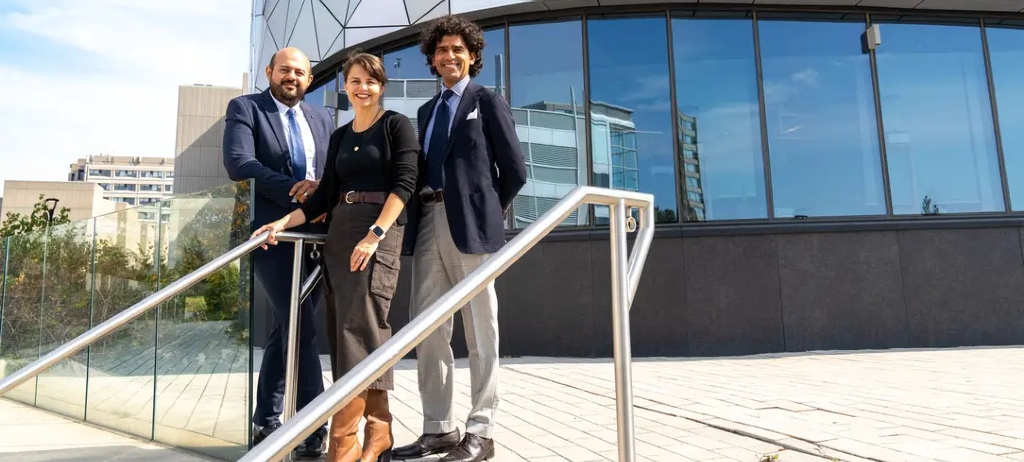
By Elaine Smith
Long before interdisciplinary organized research units were prominent at York University, civil engineering professors with expertise in water issues at the Lassonde School of Engineering joined together to form iWater – a collaborative that looks at various aspects of water management.
“There are so many ways to think about water, beyond drinking water or surface water,” said Magdalena Krol, an associate professor of civil engineering who co-founded iWater with Ahmed ElDyasti, also an associate professor of civil engineering. “We decided to bring all those interests together. It provided us with opportunities to share ideas, collaborate, work on grant writing and share students. It also gave our students an opportunity to see who else is working on various water issues.”
The collaborative has six members who have found numerous opportunities to collaborate. Krol focuses on environmental engineering, specializing in numerical modelling of groundwater flow, contaminant transport and addressing pollution. ElDyasti is interested in wastewater cleaning and processing and how to derive energy from wastewater. Professor Satinder K. Brar, the James and Joanne Love Chair in Environmental Engineering, is a leader in advanced biotechnology and is interested in value-added bioproducts based on wastewater and wastewater sludge, as well as in finding suitable biological detoxification technologies.
Stephanie Gora, an assistant professor, explores drinking water management, especially in Arctic communities, and the development and evaluation of light-based technologies for water purification. Assistant professor Shooka Karimpour looks at microplastics in water and how turbulence and entrainment affect marine ecosystems. Usman Khan, an associate professor, focuses on water resources engineering, examining how the hydrological cycle is affected by climate change, potentially bringing on more floods or leading to drought or water scarcity.
“Both droughts and floods influence water supplies and access, and if you think of access to clean water as a human right, you want to have the technology to ensure people have access to clean water,” said Khan. “For instance, we need to think about accessing clean water during humanitarian crises. At refugee camps and similar sites, people need access, but lack water infrastructure. We’re doing research to see what the guidelines should be for accessing safe drinking water in these situations.
“At York, we’re also looking at artificial intelligence to improve water treatment facilities across Ontario, along with industry partners. We want to ensure that these plants can respond quickly to the effects of climate change; using AI technology allows a faster response to extreme events,” said Khan.
Krol says members of iWater, both together and individually, are “finding new innovative technologies at the intersection of renewable energy, water remediation and sustainability.”

















